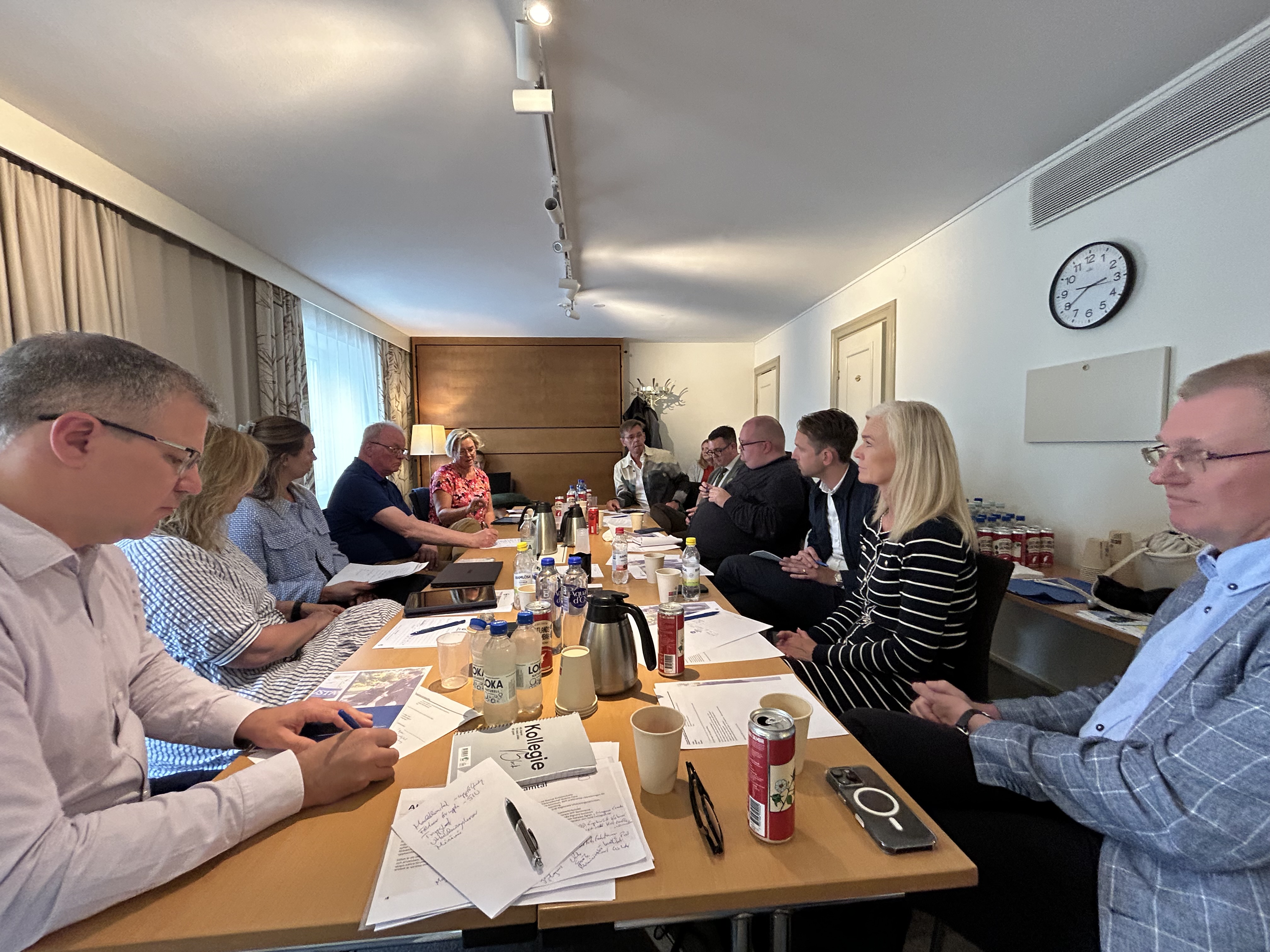)
Insights from Almedalen 2025: Healthcare and Infrastructure & Transport in Focus
Each summer, Almedalen Week transforms the town of Visby into Sweden’s most dynamic political and policy forum—bringing together decision-makers, organisations, businesses, and citizens to discuss the country’s most pressing issues. This year, Rud Pedersen supported clients across multiple sectors during the week’s many panels, meetings and conversations. Two key policy areas stood out: healthcare and infrastructure & transport. Below, Deputy Managing Partner and Healthcare Director, Ella Bohlin, and Partner and Head of Transport and Infrastructure, Bertil Kinnunen, reflect on the key themes and discussions shaping each of these domains, from the future of healthcare governance and civil preparedness to the role of transport planning and procurement in a shifting security landscape.
Healthcare during Almedalen 2025: A focus on the future organisation of healthcare, preparedness/readiness and the major diseases
Recently, Rud Pedersen had the privilege of arranging a variety of events that reflect the breadth of our customers' involvement in healthcare, life science and medtech.
Firstly, we supported clients to arrange a seminar focusing on the implementation of welfare technology, where we explored how digital solutions can transform care in the home. We also had several discussions on current vaccine issues and the importance of robust vaccination programs. Furthermore, on behalf of clients, we conducted a range of strategic one-to-one meetings with members of parliament, regional politicians and government representatives. Early in the week, a well-attended seminar was arranged on the Health Care Responsibility Committee's Vårdansvarskommitténs newly presented proposal, which set the tone for many conversations about the future management of healthcare as the days went on. And lastly, we arranged a seminar followed by a dinner focusing on chronic diseases, where we highlighted challenges and innovative solutions for this major disease with impact on people’s lives and society.
An important roundtable discussion on the issue of preparedness took place in the midst of the week, which underlined the importance of robust supply chains in crisis and war.
The most recurring topics in healthcare during Almedalen week that we observed were:
-
Healthcare governance and organisation - with the Healthcare Responsibility Committee's proposal fresh in mind, discussions about increased state governance and division of responsibility were constantly present. The issue of centralisation versus regional autonomy continues to engage.
-
Digitalisation and welfare technology - the potential of technology to streamline healthcare, relieve staff and increase patient security at home was a popular topic. At the same time, issues of equal access and digital inclusion were raised.
-
Preparedness and security of supply. Our current global situation has highlighted the importance of robust preparedness systems, not least when it comes to medicines. How do we secure robust systems in an uncertain world?
-
The long-term challenge of attracting and retaining health care staff permeated many conversations, and how policy can contribute to creating a better work environment for healthcare staff.
We are very proud to have contributed to these critical discussions in the healthcare sphere and look forward to continuing to work closely with our clients to drive these issues forward.



Infrastructure and Transport at Almedalen 2025: Strategic positioning, dual-use infrastructure, and smarter transport procurement in a time of civil preparedness
One could observe that several parallel discussions were taking place regarding traffic and infrastructure during this year’s Almedalen Week.
Primarily, it was a kind of preliminary sparring ahead of the next stage of the National Plan, where many stakeholders promoted their priorities and tried to strengthen their position before the Swedish Transport Administration presents its proposed action plan on September 30th. During the Autumn, the proposal will then be sent out for consultation. In parallel, a wide range of seminars and other activities were held on related themes: infrastructure, transport opportunities, and logistics from a preparedness perspective.
Naturally, arguments are strengthened when one can demonstrate dual use—meaning that an infrastructure investment not only improves conditions for civilian transport and boosts industrial competitiveness and personal travel options, but also contributes to strengthening preparedness and crisis response capabilities.
A number of actors focused on precisely this point, especially in light of the recently adopted defence agreement, which stipulates that 1.5% of GDP will go toward strengthening civil defence, including transport capabilities. Altogether, this could mean a substantial increase in funding for infrastructure, logistics, and transport. But it all needs to be handled wisely.
Beyond that, there was also intense discussion around public transport and how it is procured. For example, it can be noted that for a period, more than half of all procured regional train services have operated under emergency contracts—meaning that agreements were terminated and more expensive temporary contracts had to be signed. Increasingly, procurement processes are being appealed, whether it concerns trains, buses, or service transport (e.g. paratransit, patient travel, school transport), which is of course unfortunate. A central issue is risk-sharing between the purchaser and the operator, and how to create conditions for high-quality service that improves commuting options.
And ultimately, it is all about strengthening and developing Swedish society.
In this environment, we at Rud Pedersen have supported a number of clients in navigating, gaining visibility, and taking initiative by arranging a wide range of activities, such as seminars, roundtable discussions, dinner conversations, and individual meetings with decision-makers and authorities. With this, they have laid a strong foundation for their continued work.
If you would like help navigating these or other related issues, you are welcome to contact us at Rud Pedersen.


)
)
)